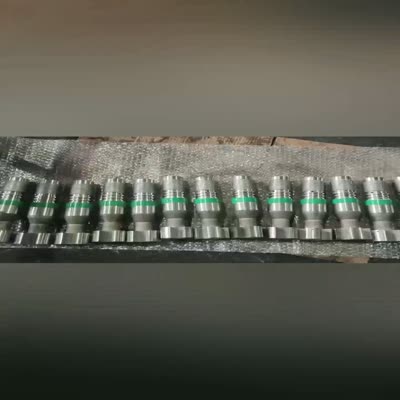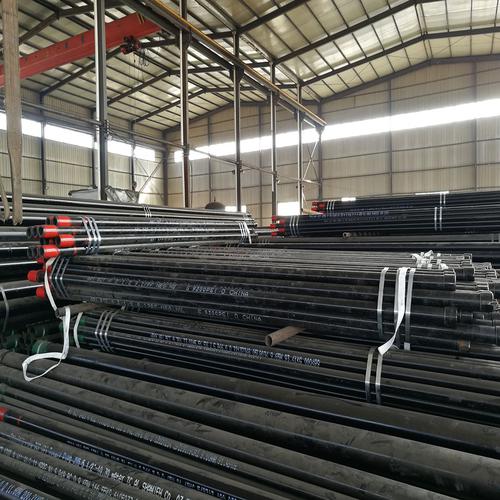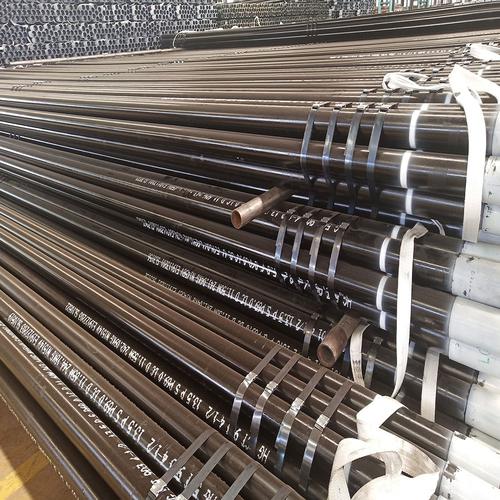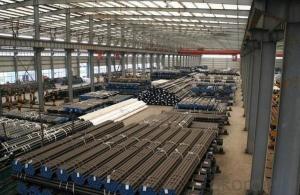Customized 5-1/2" Casing Pipes with API Round/Buttress Threads
- Loading Port:
- Tianjin
- Payment Terms:
- TT OR LC
- Min Order Qty:
- 1 m.t.
- Supply Capability:
- 1400 m.t./month
OKorder Service Pledge
OKorder Financial Service
You Might Also Like
Specification
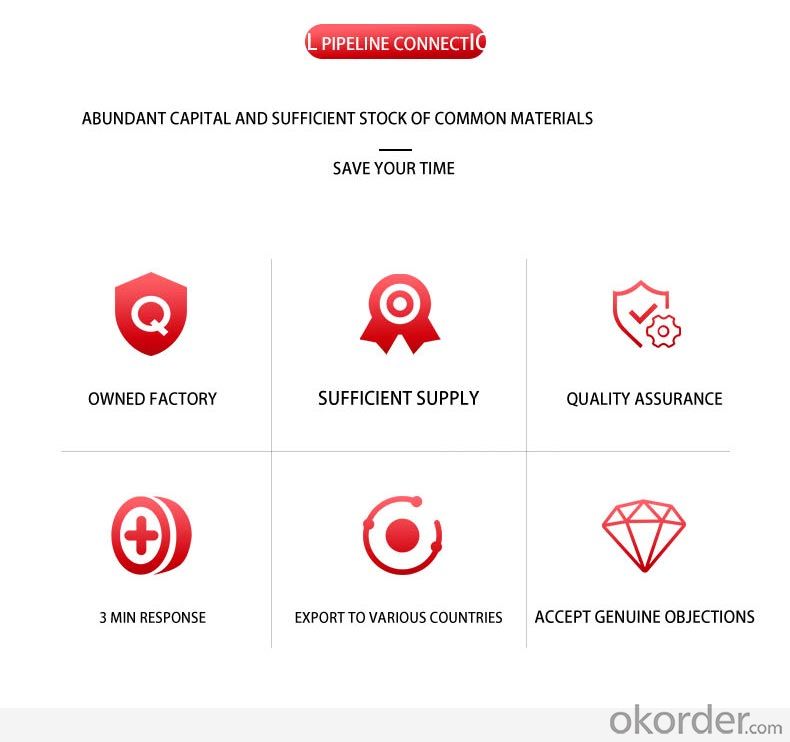
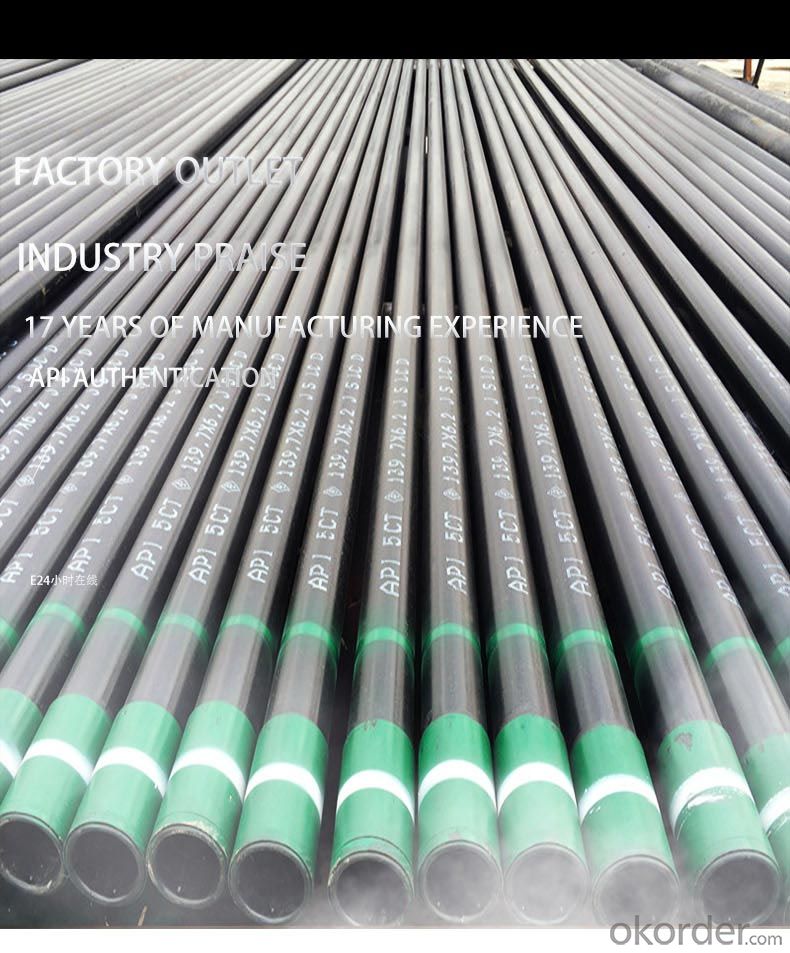
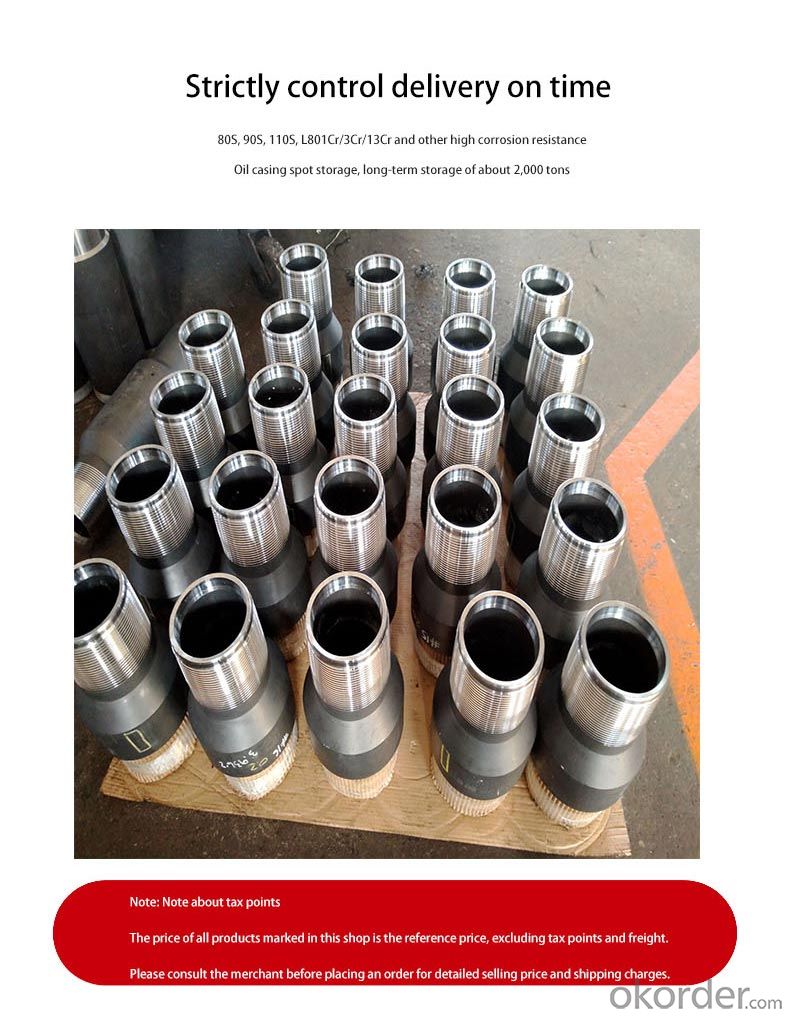
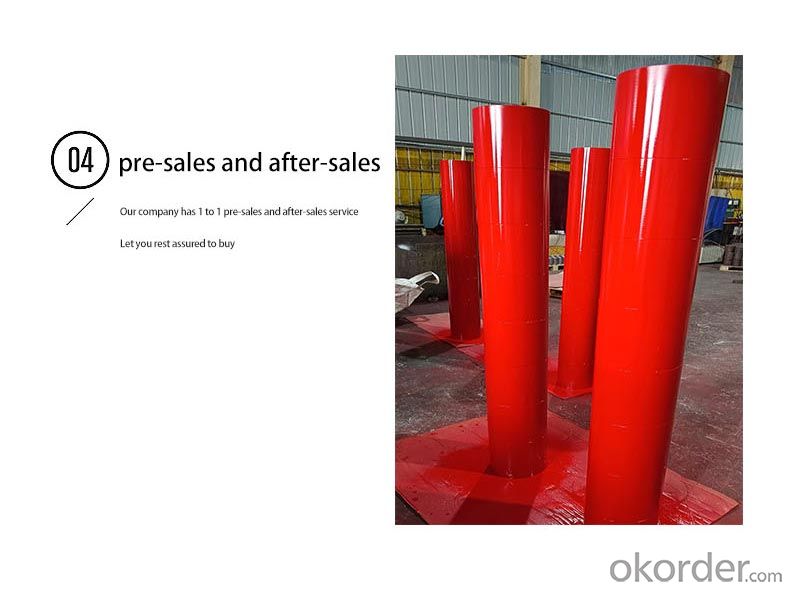
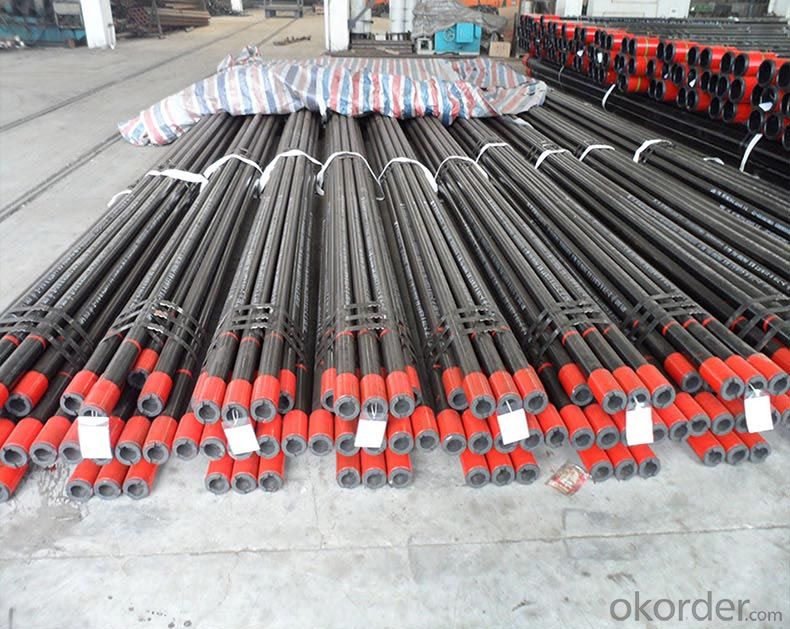
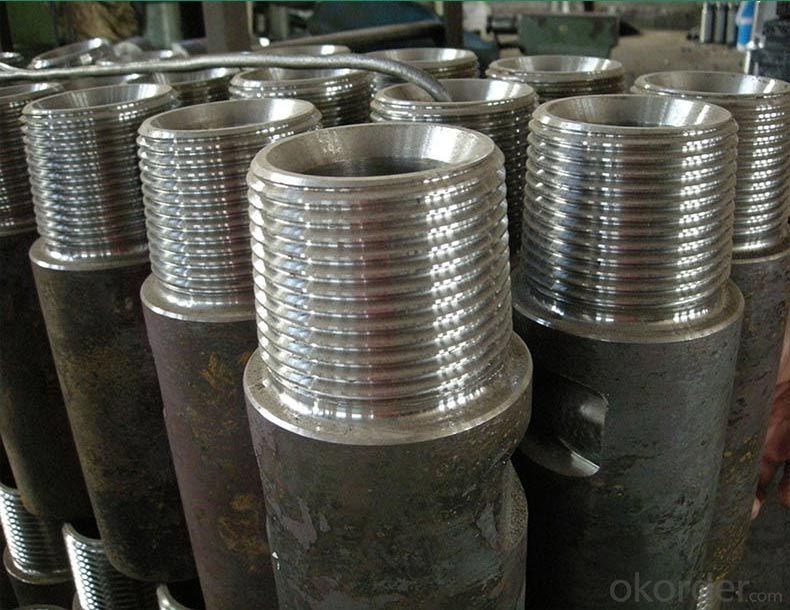
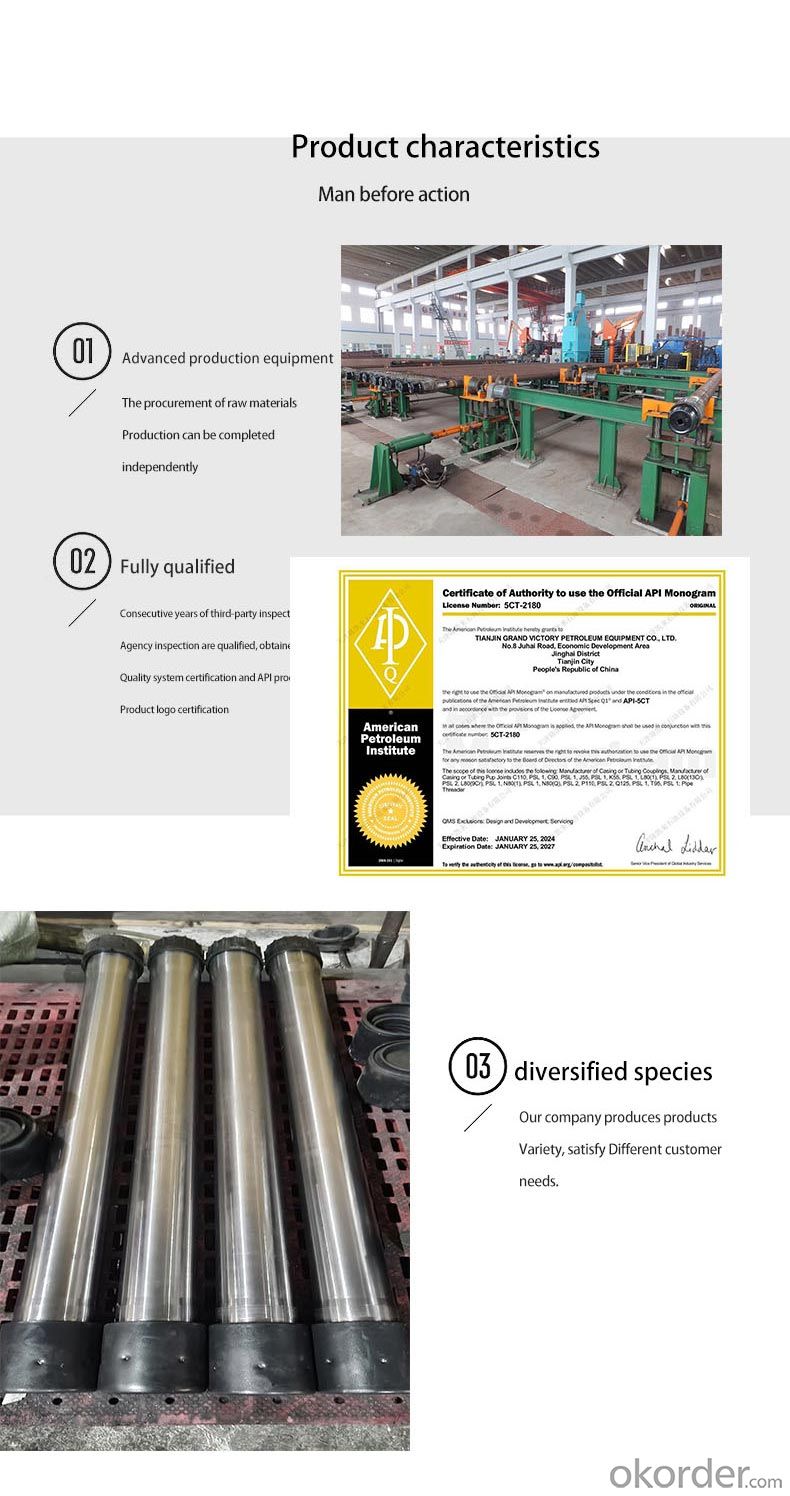
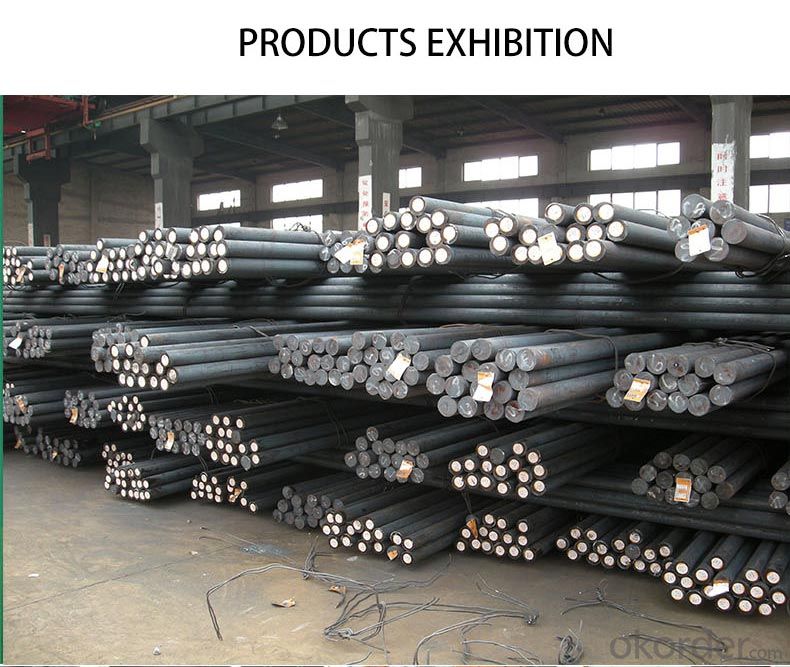
API 5CT J55/N80/P110 OCTG Casing & Tubing Manufacturer Direct
Comprehensive OCTG Solutions for Every Well Profile
As an API-licensed manufacturer, we eliminate intermediaries to deliver J55/N80/P110 casing and tubing with 15% cost savings. Our vertically integrated production process ensures full traceability from steel billet to finished product.
Technical Specifications
Material Science:
J55: 0.45% Mn, 0.25% C composition for shallow wells (≤8,000ft TVD)
N80: Quenched & tempered microstructure withstands 12,000psi collapse pressure
P110: 110ksi SMYS with Charpy V-notch impact ≥45J at -20°C
Threading Technology:
CNC-machined API LTC/BTC threads with ±0.003" pitch diameter tolerance
Optional VAM TOP connections for HPHT wells
Quality Assurance:
100% ultrasonic testing (UT) for laminations
Hydrostatic tested to 80% of yield strength
Applications
J55: Water injection wells, surface casing
N80: Intermediate casing in sour gas fields
P110: Production casing in 15,000psi reservoirs
Case Study
A Permian Basin operator reduced casing costs by 18% using our direct-shipment P110 casing for 35 horizontal wells, achieving 95% torque-turn compliance during running
- Q: How are steel pipes used in the construction of desalination plants?
- Steel pipes are commonly used in the construction of desalination plants for various purposes. They are primarily utilized for the transportation of seawater and brine, as well as for the distribution of fresh water throughout the plant. Steel pipes are preferred due to their durability, corrosion resistance, and ability to withstand high pressure and extreme temperatures. Additionally, they can be easily welded together, allowing for efficient installation and maintenance.
- Q: What is the difference between internal and external coating for steel pipes?
- Internal coating for steel pipes refers to the application of a protective layer on the inner surface of the pipe. This coating is primarily used to prevent corrosion and to enhance the pipe's resistance to various chemicals present in the fluid being transported. The internal coating is typically applied using techniques such as spraying, brushing, or dipping, and it can be made of various materials such as epoxy, polyurethane, or cement mortar. On the other hand, external coating for steel pipes involves the application of a protective layer on the outer surface of the pipe. The purpose of this coating is to provide protection against environmental factors such as corrosion, abrasion, and impact. External coatings are usually applied using methods like wrapping or coating with materials like polyethylene, fusion-bonded epoxy, or asphalt enamel. In summary, the main difference between internal and external coating for steel pipes lies in their location and purpose. Internal coatings protect the inner surface of the pipe against corrosion and chemical attacks, while external coatings safeguard the outer surface from environmental damage. Both types of coatings are crucial for ensuring the longevity and reliability of steel pipes in various applications.
- Q: What are the different methods of coating steel pipes?
- There are several methods of coating steel pipes, including fusion bonded epoxy (FBE) coating, liquid epoxy coating, polyethylene (PE) coating, and polyurethane (PU) coating. Each method offers unique advantages and is chosen based on factors such as the desired level of corrosion protection, application environment, and project requirements.
- Q: How are steel pipes used in the manufacturing of automobiles?
- Steel pipes are commonly used in the manufacturing of automobiles due to their strength, durability, and versatility. They are used in various applications throughout the automobile manufacturing process. One of the main uses of steel pipes in automobiles is for the construction of the vehicle's chassis and body. Steel pipes are often used as structural components to provide strength and rigidity to the vehicle. They can be bent, shaped, and welded to form the desired structure, making them an ideal choice for automotive applications. Steel pipes are also used in the exhaust system of automobiles. The exhaust system is responsible for guiding and directing the exhaust gases away from the engine. Steel pipes are used to create the exhaust manifold, which collects the gases from the engine's cylinders, as well as the exhaust pipes and mufflers. The high temperature resistance and corrosion resistance of steel make it suitable for withstanding the harsh conditions of the exhaust system. In addition, steel pipes are used in the cooling system of automobiles. They are used to transport coolant from the engine to the radiator and back, helping to regulate the engine's temperature. Steel pipes are preferred for this application due to their ability to handle high pressure and temperature, as well as their resistance to corrosion and chemical damage. Moreover, steel pipes are used in the fuel system of automobiles. They are used to transport fuel from the tank to the engine, ensuring a steady and reliable supply of fuel. Steel pipes are chosen for this application because they are resistant to corrosion and can handle the high pressure and temperature associated with fuel transportation. In summary, steel pipes are essential in the manufacturing of automobiles. They are used in the construction of the chassis and body, the exhaust system, the cooling system, and the fuel system. Their strength, durability, and versatility make them a preferred choice for automotive applications.
- Q: Are steel pipes fire-resistant?
- Indeed, steel pipes possess fire-resistant qualities. Being a non-combustible substance, steel does not ignite or aid in the propagation of flames. Steel pipes exhibit elevated melting points and can endure extreme temperatures, rendering them exceptionally fire-resistant. Consequently, they find widespread utilization in critical areas necessitating fire safety measures, including fire sprinkler systems, fire hydrant systems, and fire-resistant architectural frameworks. Moreover, the fire resistance capabilities of steel pipes are reinforced by their renowned robustness and resilience.
- Q: How are steel pipes used in the construction of geothermal power plants?
- Steel pipes are used in the construction of geothermal power plants for various purposes. They are primarily used to transport and circulate the geothermal fluid, which carries the heat from the underground reservoir to the surface. These pipes are typically made of high-quality steel that can withstand the high temperatures and corrosive nature of the geothermal fluid. Additionally, steel pipes are used in the construction of injection wells, where cool water or other fluids are injected back into the reservoir to maintain pressure and sustain the heat extraction process. Overall, steel pipes play a crucial role in the efficient and reliable operation of geothermal power plants.
- Q: What are the industries that commonly use steel pipes?
- Some of the industries that commonly use steel pipes include construction, oil and gas, water and wastewater treatment, mining, manufacturing, automotive, and infrastructure development.
- Q: Can steel pipes be used for conveying solids?
- Yes, steel pipes can be used for conveying solids. Steel pipes are commonly used in industries such as mining, construction, and agriculture to transport various solid materials, including ores, gravel, sand, and grains. The durability and strength of steel make it a suitable material for handling solid substances efficiently and ensuring their safe transportation.
- Q: What is the maximum allowable stress for steel pipes?
- The maximum allowable stress for steel pipes depends on various factors such as the grade of steel, diameter, wall thickness, and the intended application. It is typically determined by industry standards and codes, such as the American Society of Mechanical Engineers (ASME) Boiler and Pressure Vessel Code. Therefore, there is no one-size-fits-all answer to this question.
- Q: Can steel pipes be used for mining applications?
- Yes, steel pipes can be used for mining applications. Steel pipes are known for their strength, durability, and resistance to extreme conditions, making them suitable for various mining activities such as transporting water, air, or chemicals, as well as for structural support and ventilation systems in mines.
Send your message to us
Customized 5-1/2" Casing Pipes with API Round/Buttress Threads
- Loading Port:
- Tianjin
- Payment Terms:
- TT OR LC
- Min Order Qty:
- 1 m.t.
- Supply Capability:
- 1400 m.t./month
OKorder Service Pledge
OKorder Financial Service
Similar products
Hot products
Related keywords





